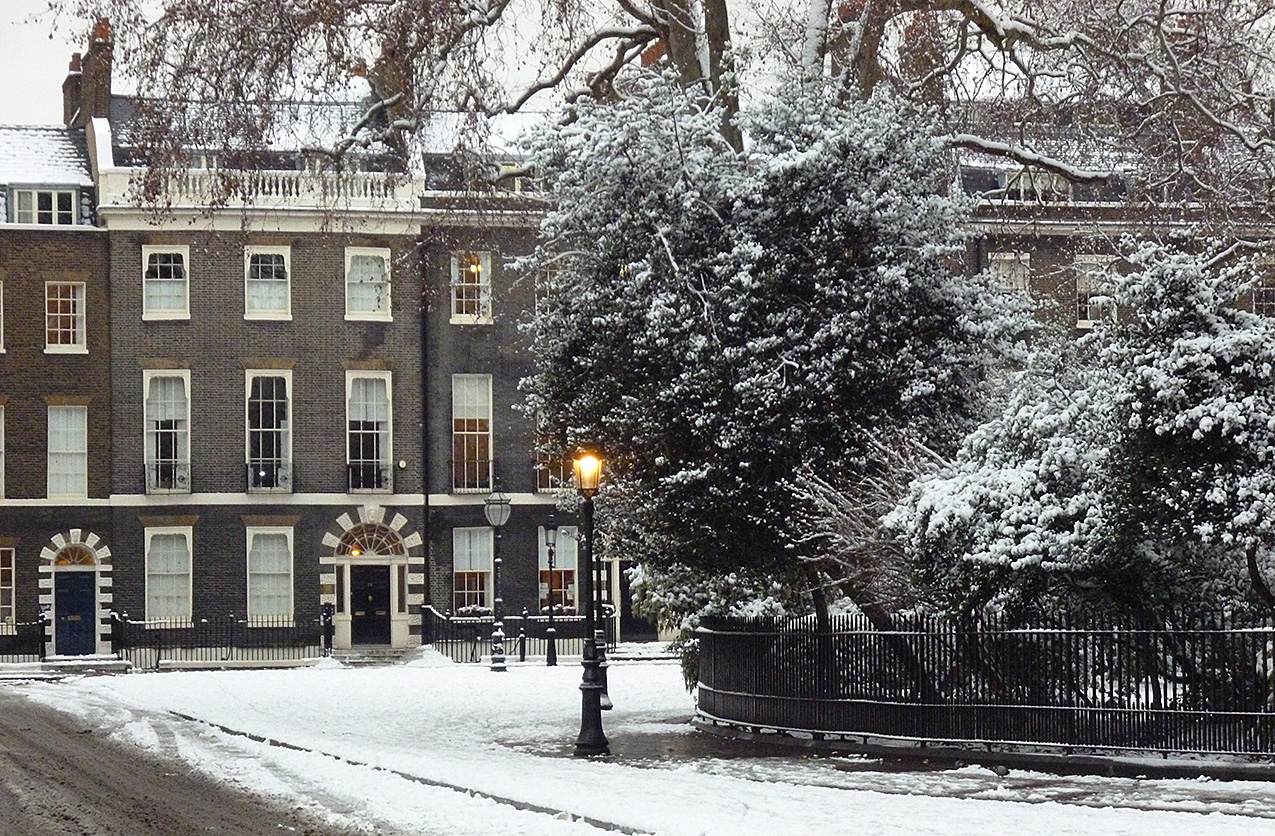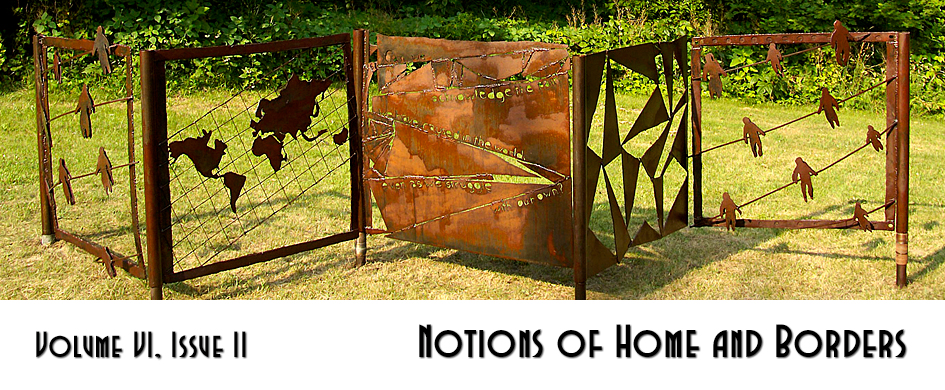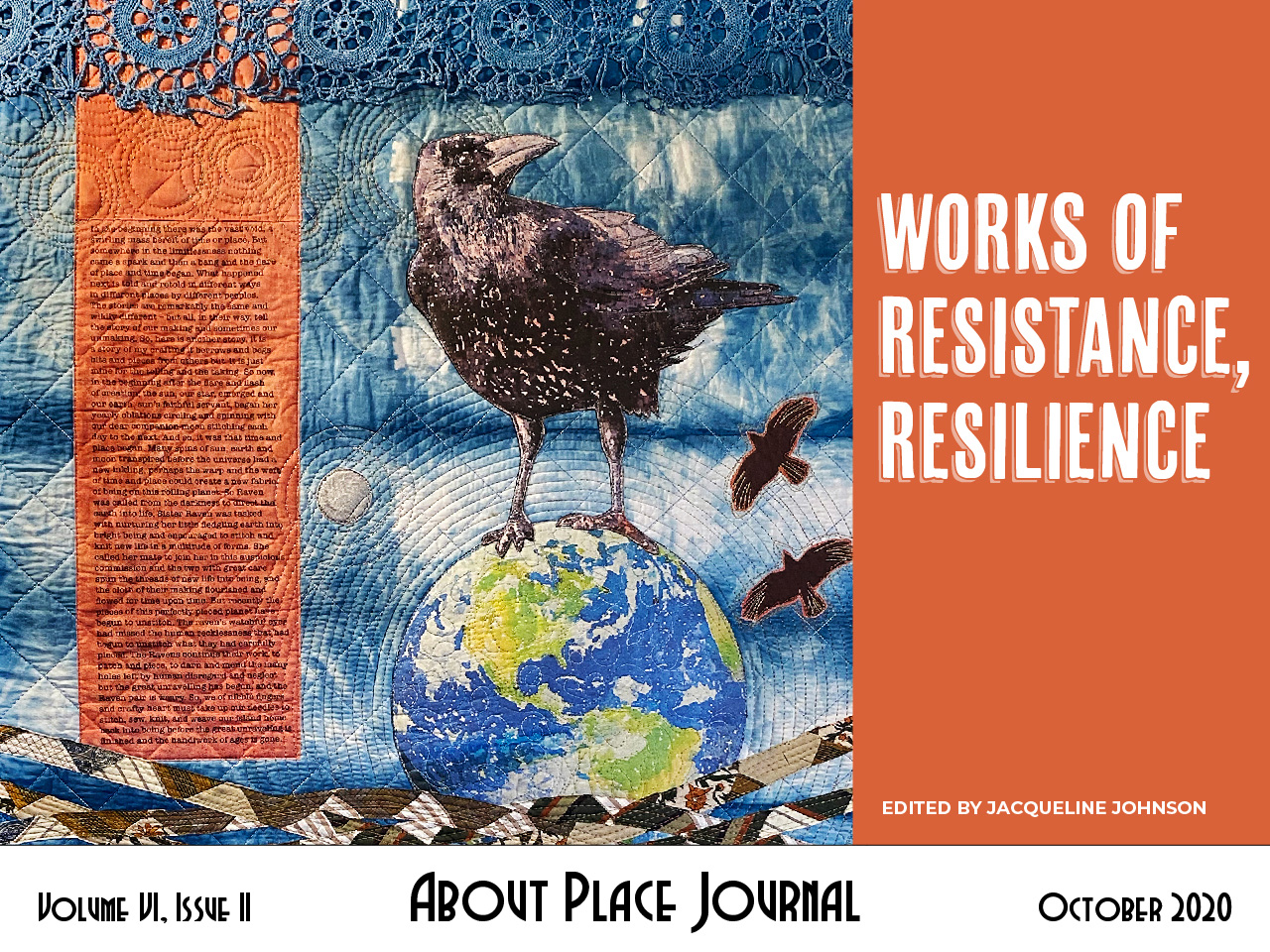
The pair used to sit at a corner table of Pret-a-Manger off Bedford Square. I had noticed them on my morning coffee stops before going to my post as visiting professor in one of the universities dwelling in the Bloomsbury district of London. Bloomsbury of the Dukes of Bedford and then of the Virginia Woolf and her modernist circle had morphed into an elegant set for international students and tourists. Two figures forming one shape had become a fixture in the periphery of my vision, a constant presence, a blot on my subconscious. They blended in with the global academic look of Bloomsbury: clearly not Sotheby’s or Architectural Associates, but most likely SOAS graduate students in North African post-colonial studies. They spoke and moved self-assuredly, engaged, focused, leaning over newspapers always open between them. Strikingly discreet, their movements synchronized and impenetrable. A containment that is the prerogative of tradition; which can neither be improvised nor fabricated. A quality to which I am acutely sensitized – and which I envy. A calm aura possessed by those family members who were transplanted directly from their villas in northern Tehran to villas in the hills of Los Angeles at the time of 1979 revolution. Un-breached tradition.
“May I use the electrical outlet behind you to charge my laptop?”
“Of course,” as one moves and helpfully plugs the charger in herself.
The next day, as I was about to leave my table, and had gathered my notebook and laptop into my bag, moved by the trace of yesterday’s unreadable “of course,” I said “hello.”
“Oh hello.” They smile back, keeping a distance yet friendly.
“May I ask where you are from?”
“Where do you think we are from?”
“Ethiopia?”
“No, we come from the same part of the world as you do.”
“And are you students?”
“No, we conduct family business.”
Three hours later I was still involved in a conversation which later I described, risking hyperbole, as the single most intriguing conversation of my life.
They told me they are sisters belonging to a Bedouin tribe related to the Saudi rulers of Arabia. Their tribe has had a continuous 800 years of history going back to Yemen. The deciding moment of the modern history was when their grandfather was defeated by Ibn Saud and had to capitulate to him and be brought to Riyadh to live under the control of the House of Saud. They described the grandfather’s rulership and capitulation with pride, he had demonstrated great honor and wisdom having saved as many lives as he could. Their father, the remaining and direct heir to the Emir, had left Saudi Arabia into exile in the 1970s, and had lived his life as living testimony to this history. They had settled in Knightsbridge but their culture always remained the culture of the Bedouin and their tents: nomadic, proud, and radically devout. Our conversation about home and exile had the help of references to Homer, Dante, Machiavelli, T.S. Eliot, Bedouin oral poetry and lore; the older sister Nasrin had studied comparative theatre at the graduate level before she had to leave the academy. Historical anecdotes about how Jinn (evil spirits) in the desert had defeated British colonial armies were seamlessly followed by personal ones recounting how the Eastern German secret police provided a safe haven from the Saudi surveillance, when they were little girls traveling with their dad in Germany, in a different time.
I was compelled by their nomadic notion of home, as I had been struggling to come to terms with my own. After a divorce following a series of moves from childhood into countries, languages, rooms and apartments I had come to feel specially at home living and working on the exquisitely symmetrical, historical, even monumental Bedford Square. The square appeared to me as a living room which I would cross to go to the Library at the Warburg Institute, or teach a class at the university across the square. Bloomsbury resurrected for me images of my childhood living in New Side, the British built company town for the employees of the Anglo-Iranian Oil company in the South Iranian city of Ahvaz. Bloomsbury had come to feel like a comfortable house I did not want to leave.
Mesmerized by the girls’ sense of belonging to the nomadic tradition and rituals of bin Talal tribe – could the nomadic be the metaphor that contains and gives shape to my life? – I heard the words uttered that at the moment they were homeless; but the words did not register. The image and fantasy of 800 years of tribal history did not allow me to process those words in present day Bloomsbury. The girls embodied civility and tradition so visibly in every move and glance, I could not place them or visualize them abjectly on the streets.
Over the months that followed, as I found myself always running into Nasrin and Jahan in Pret-a-Manger, discussing contemporary culture, politics and economy – their homelessness became visible and found contours. Yes, I could see that they always wore the same outfit, blue jeans with worn out yet clean sweaters, and carried too may bags. Yes, they sat at the corner table not only to “watch their backs” and watch out for possible assailants as they had suggested, but also to hide their bags. After some time, I broached delicately:
“Where do you actually sleep?”
“We are roughing it at the moment.”
I learned in London that means sleeping on the street at night. They told me that since they had become “undocumented,” they could no longer have a bank account, receive money from abroad, nor rent an apartment. That the UK government under the pressure of the Saudi government was blocking every single one of their attempts to establish residency, to which they were legally entitled after 17 years of living in the UK. The game they said was to demoralize them so that they would capitulate to the Saudis. They would be then given the stipend as all the other dissident members including their brothers and mother. Accepting the stipend, they said to me, was worse than death. I never questioned the logic. They continued to sleep in the streets night after night. Month after month. I would leave them to go to my elegant Georgian flat on Bedford Square.
As I approached the end of my year’s assignment at NYU and my lease, the boundaries between homelessness and at-home-ness shifted. We had become fond of each other as friends. They thought of me as a Jewish cousin, they said. I had applied for a university job in London which I wanted and thought I should get, and a visa I thought I would not get. During this time, Nasrin and Jahan were rooting for me. And yet, while waiting for my visa, I became paranoid about our friendship: who were these people sleeping on the streets? What if my friendship with them is dangerous? What if the story they say is true, and the Saudis and the UK government are really watching them, watching their every move, as they claimed? What if I do not get the visa because of these meetings in Pret a Manger? I told them at lunch in an Iranian restaurant in Marylebone to which I had invited them. For the first time displaying a subtle indignant air, the younger sister Jahan said: “Mahnaz dear, they are watching because they don’t want anything to happen to us, they would be watching to protect us from you. So you shouldn’t worry!”
I had given up trying to “help” find a solution to their predicament. Attorneys? They dropped the case for political pressure, they said. Media? They would not. It would be both political suicide, and also, would absolutely go against the bin Talal tradition of orality. No one had written or spoke to media about this. I did not fully understand the logic. The historian in me was frustrated. A part of me was always incredulous.
I would plan to see Nasrin and Jahan in subsequent years, on each visit to London in Pret a Manger. They had managed to get lawyers and their case was moving along. Now and again there would be legal and procedural glitches, and they had to move back and forth between hotels and the street when the government blocked their access to money.
During my sabbatical semester when I had rented a loft on the top floor of a north London house, their situation changed radically. A top law firm had agreed to look at their case, and an Australian partner in the firm decided to move the legal process along. They were on the streets again, as money had run out, but legal resolution was on the horizon.
It was then that I invited them to rest for a few hours in my lovely attic. They arrived on foot walking a mile from the tube station each carrying several bags. Remarkably they looked composed, as before, as in Bloomsbury. But now I detected a trace of fatigue. They kept the thought at bay, just as endurance athletes are advised to do. Discretion was a survival tool. They came up the stairs and settled into two chairs, with their backs to the skyline of Camden roofs, looking at me. As I was about to leave for work, I became transfixed at the door with my hand on the knob. I considered that in that room I had thousands of dollars, passports, irreplaceable legal documents belonging to my father, and jewelry in plain view. Leaving them alone there was a real event. Who were these girls? What did I know about them? I had never seen one picture of their “previous” life. Absolutely not one piece of evidence that they were who they said they were. Leaving that room, I was defining the status and the meaning of all that had exchanged between us. At that moment, I was deciding who I thought they were. That their story should be true was outside the frame of the possible: the historian in me could not fathom a history not written; the cosmopolitan in me could not believe in England such breach of legal process could occur; the Middle Eastern in me could not believe that family members had not saved their two girls from the street, and the tribe would let the daughters of their leader wither in the streets of London. Their story defied the reasonable, rational, and permissible. It was impossible.
Yet, I opened the door and left. Feeling surreal because I was acknowledging a fuller reality, something that had taken place between us, underwritten by a fantasy of 800 years of history without text, because nomadic and oral, but embodied in the body of these two sisters. I trusted that.
A week later, Nasrin and Jahan had moved into a hotel. They invited me out to dinner, and appeared carrying a large shopping bag from the House of Fraser. A gift they had picked up for me. An exquisite leather tote bag, light, capacious, easy to handle, for people on the move. They said they saw it and it had my name on it.
On the previous day my landlord, who had seen the girls leave her house, had called me in for a conversation. I expected one of our lively conversations about world and UK politics. My landlord, previously an actress who played the role of a detective in a well-known television series was now completing her degree in law. She, and the friend who had connected us, were supporters of Labour, progressive and activist. In our conversations I had always felt a little guilty for not doing enough. This time it was different. She thought it was unreasonable of me to have had undocumented and undeclared guests. She had met the sisters briefly the first time I had them over. Since then, I had revealed that they were homeless. I explained, but they are princesses. My landlord, shocked by my apparent ignorance of political scene in England interjected that she could not stand royals. My perfectly reasonable landlord asked me either to recognize the unreasonableness of my behavior, or to leave.
I am leaving my sunny loft with skylights and a window that opens into the vastest of the skies.
** I have read this to Nasrin and Jahan and they have liked it and the idea that it would be shared publicly.


